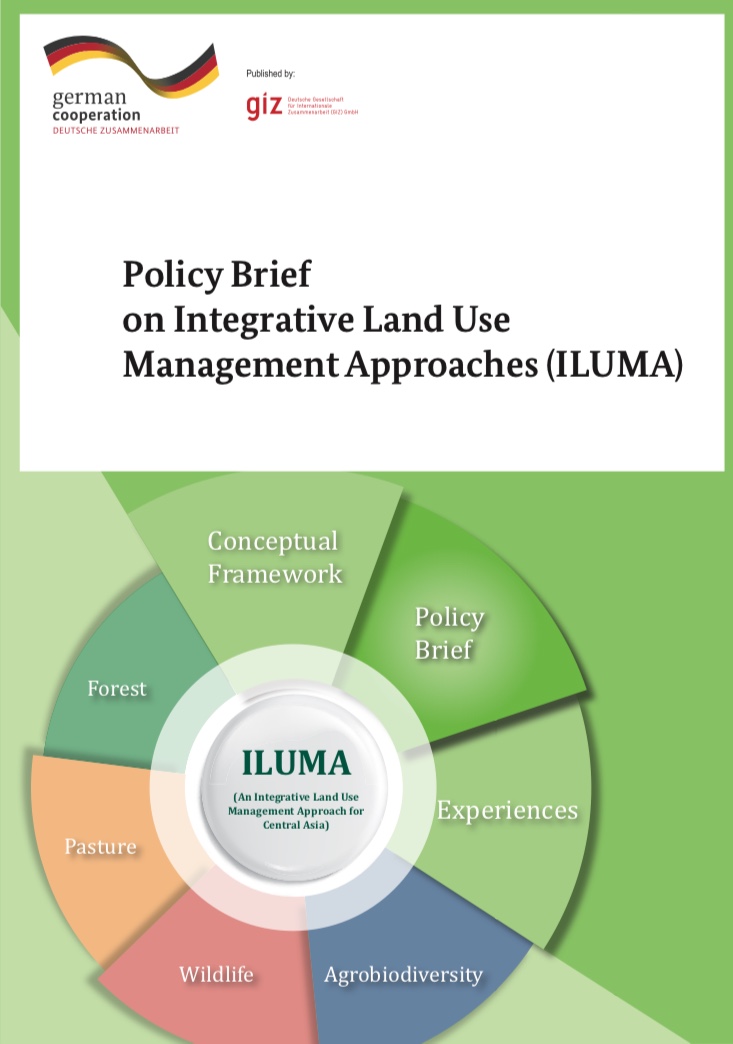Land Resources such as pastures or forests present the production base for most of the Central Asian inhabitants. Livestock farming, production of agricultural crops, fruits, nuts and forest products constitute the basis of the livelihood for the rural population. The core functions and the productivity of these natural resources are jeopardized by increasing land degradation and desertification.
The Regional Program for Sustainable and Climate Sensitive Land Use for Economic Development in Central Asia (SLU-CA) of the GIZ dates to the early 2000’s. In the beginning of its implementation, the Regional Program started to frame the process to develop policies as a learning cycle and to use this understanding to derive a suitable intervention logic. The learning cycle of technical cooperation, starts with the generation of best practices in close cooperation with local beneficiaries, before negotiating generalized regulations at the top. Technical cooperation therefore has an opportunity to get a foot in the door and to start developing small-scale changes, which could then be used as examples of best practice, for scaling up or scaling out.
The Integrative Land Use Management Approach (ILUMA) consists of a collection of land use practices that were piloted and tested in Central Asia and a theoretical background that describes the underlying approach: Coming from practice, going to concept.
Land Use Management in Central Asia is confronted with the following challenges and prospects:
- In Central Asia there are numerous experiences on sustainable management of land resources – in particular on pastures, forests, orchards and arable crop-land.
- These land resources are managed in immediate vicinity, with obvious trans-boundary impacts on each other, or are even interwoven in common land-use systems, as, for instance, pastures and forests.
- In most cases, the lessons-learnt and experience of the interventions / approaches on land use end up not being used outside the interventions from which they emerged.
- Although each Central Asian country has its specific context, nonetheless challenges for land use are very similar and call for regional learning, exchange and setting common frameworks.
To make better use of the valuable experiences all over Central Asia, they should be organized in a conceptual and operational framework, which enables a wide-spread use of the conceptualized knowledge and is of use.
ILUMA compendium:
